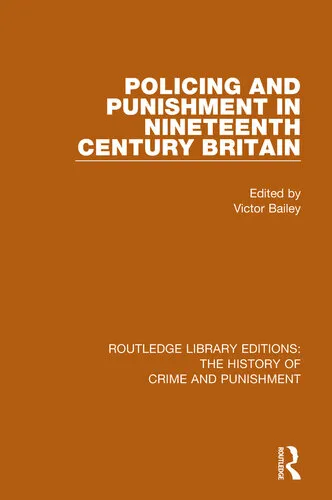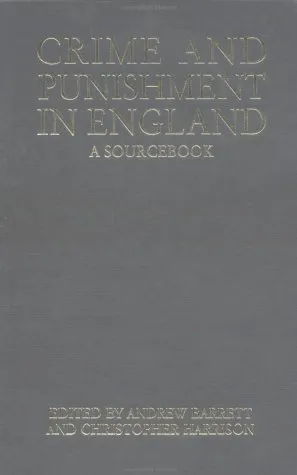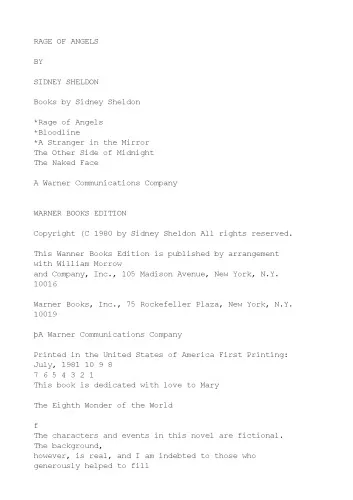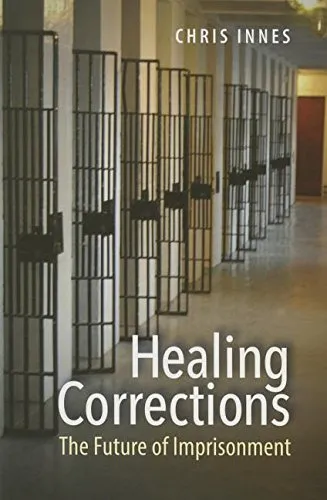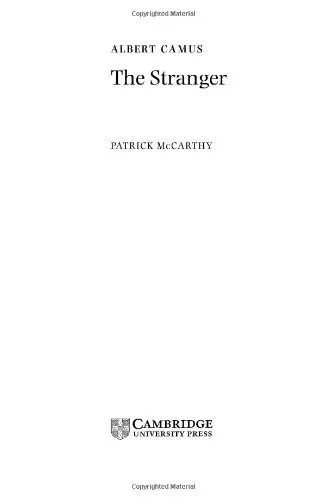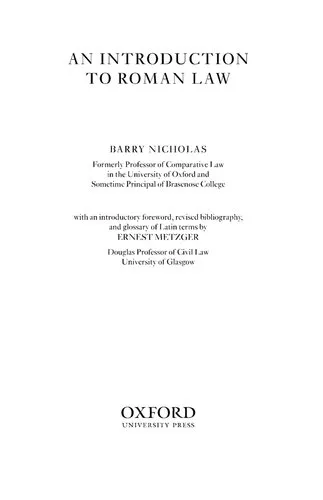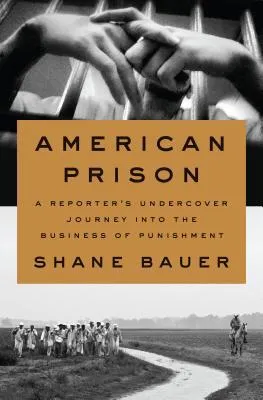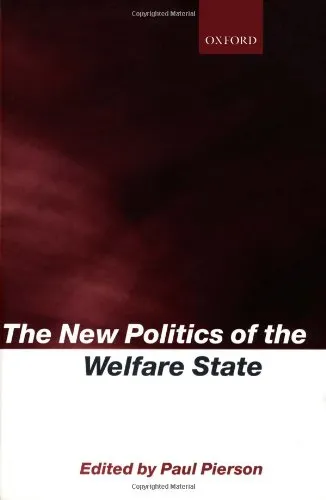Policing and Punishment in Nineteenth Century Britain
4.5
Reviews from our users

You Can Ask your questions from this book's AI after Login
Each download or ask from book AI costs 2 points. To earn more free points, please visit the Points Guide Page and complete some valuable actions.Related Refrences:
Introduction
Welcome to 'Policing and Punishment in Nineteenth Century Britain', an exhaustive exploration of the intricate systems of law enforcement and judicial punishment that characterized one of the most transformative periods in British history. As society navigated the tumultuous changes brought by the Industrial Revolution, urban expansion, and shifting public ideologies, the frameworks of policing and punishment evolved to cope with new challenges. This book sets out to delve into those transformations, providing a comprehensive analysis of how they reshaped British society and the state's approach to law, order, and justice.
Detailed Summary of the Book
In 'Policing and Punishment in Nineteenth Century Britain', the narrative begins with an overview of the pre-Victorian foundations of British policing and punishment systems. The book chronicles the establishment of the Metropolitan Police in 1829, a pivotal moment that marked the genesis of organized state policing in Britain. Readers will gain insight into the social, economic, and political motivations behind this development, as well as its impact on wider society.
Moving through the century, the book closely examines changes in penal policies and practices, such as the shift away from capital punishment and the evolving concept of incarceration. The birth of the prison system as a response to escalating crime rates provides a focal point for discussion, highlighting the debates and reforms that accompanied this new regime of punishment.
The narrative also addresses the broader themes of social control and moral regulation, assessing how these elements influenced the enforcement of laws and the treatment of offenders. The emergence of new laws targeting public disorder, vagrancy, and moral offenses are placed within the context of socioeconomic pressures and public anxieties.
Key Takeaways
- Understanding the evolution of the police force in Britain, from localized watchmen to a nationalized system.
- Insights into the transition from corporal punishment to systematic incarceration.
- Analysis of the sociopolitical factors driving legal reforms and the moral imperatives of the period.
- Comprehension of the role of class and power in shaping policing strategies and penal practices.
Famous Quotes from the Book
"The evolution of the police force in Britain was less a battle against crime, and more a war against disorder, a reflection of the governing class's fear of social upheaval."
"Prisons became the physical embodiment of Victorian society's moral convictions, simultaneously warehouses of deviance and laboratories of reform."
Why This Book Matters
'Policing and Punishment in Nineteenth Century Britain' holds significance for scholars, historians, and general readers alike, offering an essential understanding of how the structures of law and punishment have roots deep in our socio-historical foundations. By contextualizing modern issues within their historical antecedents, the book encourages a profound appreciation of contemporary debates on justice and authority. Its meticulous research brings clarity to the complex web of 19th-century British law enforcement and judicial ethics, which continue to influence today's policing policies and penal philosophies.
This book serves not only as a historical exploration but also as a lens through which we can examine ongoing issues within the criminal justice system. The lessons gleaned from past reforms and mistakes provide invaluable perspectives on the continual evolution of justice and the fundamental questions of morality, power, and order that underpin it.
Free Direct Download
You Can Download this book after Login
Accessing books through legal platforms and public libraries not only supports the rights of authors and publishers but also contributes to the sustainability of reading culture. Before downloading, please take a moment to consider these options.
Find this book on other platforms:
WorldCat helps you find books in libraries worldwide.
See ratings, reviews, and discussions on Goodreads.
Find and buy rare or used books on AbeBooks.
1422
بازدید4.5
امتیاز0
نظر98%
رضایتReviews:
4.5
Based on 0 users review
Questions & Answers
Ask questions about this book or help others by answering
No questions yet. Be the first to ask!
